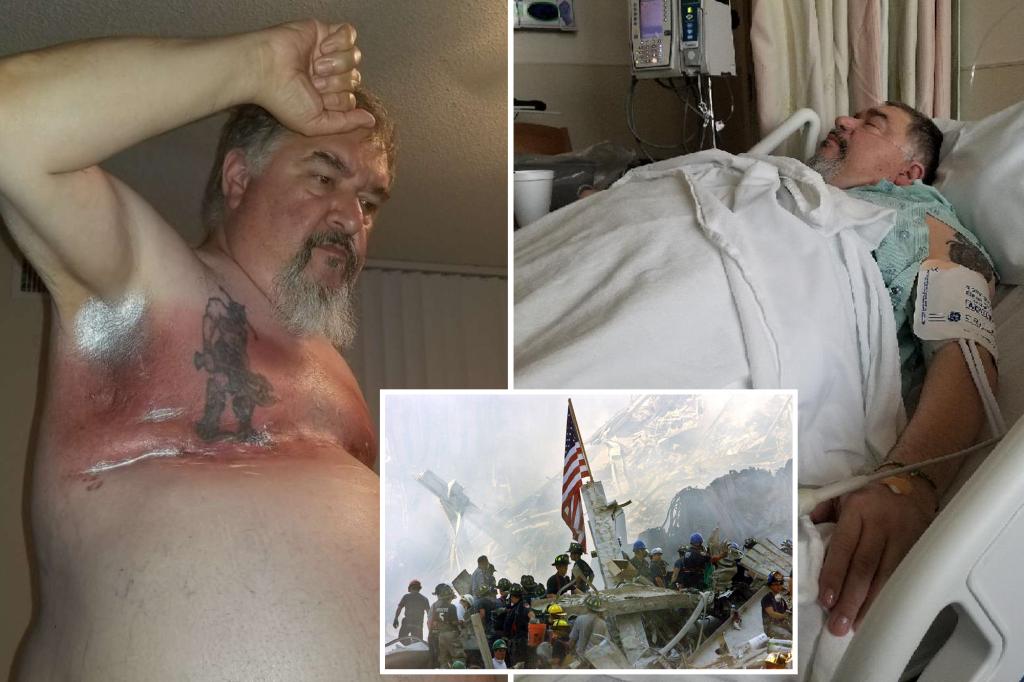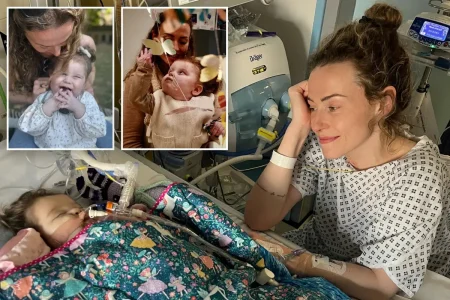The incidence of breast cancer among men involved in the 9/11 World Trade Center recovery and cleanup efforts has reached alarming levels. According to the Centers for Disease Control (CDC), 91 men enrolled in the World Trade Center Health Program (WTCHP) have been diagnosed with breast cancer, a figure six times higher than reported in 2018. This represents a rate approximately 90 times higher than the national average for men, a startling statistic given the rarity of this disease in males, typically affecting only 1 in 100,000. Experts believe this represents only the surface of the problem, with more cases likely to emerge as time progresses and awareness increases. The link between Ground Zero exposure and breast cancer in men is attributed to the toxic dust and debris cloud that engulfed the area following the towers’ collapse, exposing responders, workers, and residents to a dangerous cocktail of carcinogens.
The WTCHP, established to provide medical monitoring and treatment for those affected by the 9/11 attacks, recognizes breast cancer as one of the many illnesses linked to Ground Zero exposure. Men diagnosed with breast cancer who worked or lived within the designated Ground Zero zone, south of Canal Street, are eligible for government-funded treatment and compensation from the Victims Compensation Fund. The accounts of two survivors, Jeffrey Glennon and Joseph Polcaro, highlight the devastating impact of this disease and the unique challenges faced by men diagnosed with it. Both men were involved in the debris cleanup and recovery efforts at Ground Zero, and they directly attribute their diagnoses to the toxic exposure they experienced.
Jeffrey Glennon, a former superintendent for Weeks Marine, spent months ferrying debris from Ground Zero to Fresh Kills landfill. He discovered a lump on his chest in 2019, leading to a breast cancer diagnosis. His experience, characterized by long shifts and constant exposure to hazardous materials, underscores the direct link between the Ground Zero environment and the subsequent development of the disease. Along with breast cancer, Glennon also suffers from other health issues, including gastroesophageal reflux, sleep apnea, and the need for shoulder and hip replacements, highlighting the broader health consequences faced by those exposed to the toxic dust and debris.
Joseph Polcaro, a corrections officer who volunteered at the city morgue following the attacks, received a breast cancer diagnosis in 2019 after noticing blood spots on his shirt. Remarkably, the cancer affected both of his breasts, a rare occurrence in men. Polcaro underwent a double mastectomy followed by radiation treatment. He recounts his experience with a sense of disbelief, emphasizing the lack of awareness surrounding male breast cancer and the absence of routine screening for men. Like Glennon, Polcaro believes his exposure to the dust and debris at Ground Zero directly caused his illness. He vividly recalls the dusty body bags and the pervasive presence of carcinogens at the site.
These individual stories underscore the urgent need for increased awareness and early detection of male breast cancer, particularly among those exposed to the toxic environment at Ground Zero. The lack of awareness surrounding male breast cancer often delays diagnosis and treatment, increasing the severity of the disease and its impact on patients’ lives. The absence of routine screening for men further compounds the problem, leaving many unaware of their risk or the potential presence of the disease until symptoms become apparent. Medical professionals and advocates stress the importance of self-examination and prompt medical attention for any unusual changes in the chest area.
While the focus remains on men affected by Ground Zero exposure, breast cancer rates among women involved in the recovery and cleanup efforts are also significantly higher than the national average. Of the women enrolled in the WTCHP, a substantial percentage have been diagnosed with breast cancer, reaffirming the link between Ground Zero exposure and this specific disease. The concerning statistics for both men and women warrant further investigation and highlight the long-term health consequences of the 9/11 attacks, particularly for those directly involved in the aftermath.
The alarming rise in male breast cancer cases linked to Ground Zero underscores the urgent need for continued monitoring, research, and support for those affected by the 9/11 attacks. The experiences of survivors like Glennon and Polcaro serve as powerful reminders of the invisible wounds inflicted by the toxic dust and debris and the importance of ongoing medical care and compensation for those who continue to suffer the long-term health consequences. As more cases are expected to emerge, increasing awareness and promoting early detection of male breast cancer remains crucial, both within the 9/11 community and the wider population. The health legacy of 9/11 continues to unfold, demanding sustained attention and resources to address the complex and enduring health challenges faced by those directly impacted by this tragedy.














